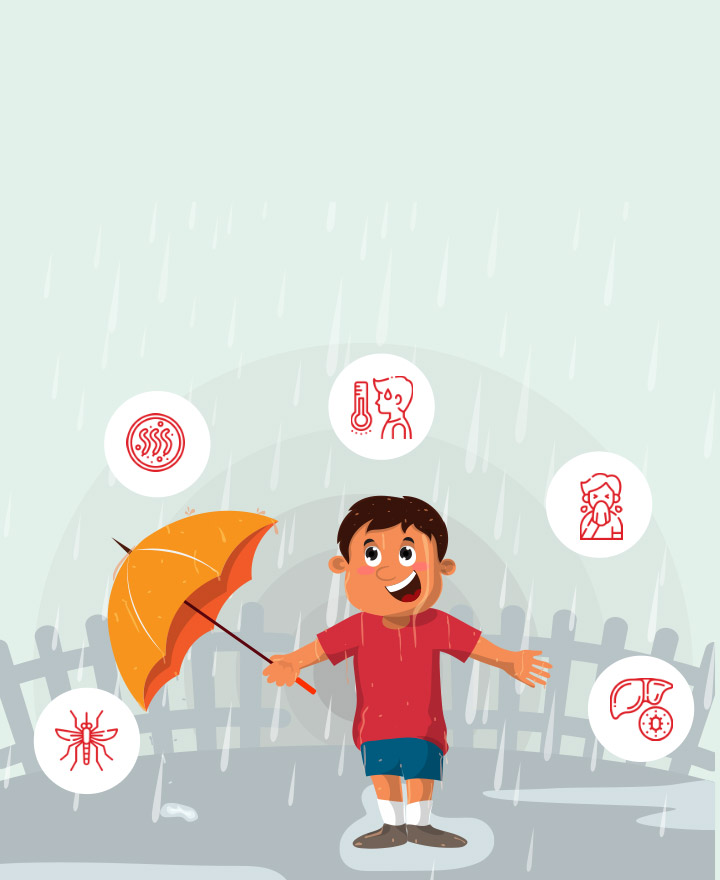

Where is Rain Stagnant Water Found?
Still water is not easily noticed but poses health and environmental hazards if left to accumulate. It mostly settles in the least-maintained areas of homes and other structures, and this accumulated water can turn into a source where mosquitoes, bacteria, and many other dangerous organisms thrive. Read on to learn about areas in the home where rainwater tends to collect and then dry up.
Places Where Stagnant Rainwater Accumulates
Stagnant rainwater commonly accumulates in the following places:
• In Pipes :
Stagnant water in pipes can occur when the water isn’t flowing regularly resulting in water trapping within the plumbing system. This can happen in unused sinks, outdoor hoses, or in any pipes that isn’t flushed frequently.
• In Toilet :
Stagnant toilet water often is seen in toilets that are not used regularly. This water can quickly become dirty and odorous, creating an unsanitary environment. If left unaddressed, it can also become a breeding ground for harmful bacteria and insects.
• Stagnant Well Water:
Wells that are not properly maintained can be an ideal place for water to accumulate. This occurs when water sits in the well without being drawn for extended periods, leading to contamination. It makes the stagnant well water unsafe for consumption and potentially harmful to those who rely on it for drinking and cooking meals.
• In Basement:
Poor drainage system or leaks can result in stagnant water.
• In The Yard:
Low spots in the lawn or garden can lead to collection of water.
• In Flower Pots & Planters:
Excess water can sit at the bottom of pots, especially if the drainage holes are blocked.
Impact on Public Health
The presence of still water poses severe public health risks as these areas can become breeding grounds for mosquitoes and other pests, resulting in the spread of various vector-borne diseases. Hence, it’s important to manage stagnant water effectively.
Ways to Identify and Eliminate Stagnant Water
A) Identification
1. Regular inspection of areas around your home after rains for accumulation of water.
2. Identifying low spots in your yard where water may collect.
3. Checking of drainage systems for overflow or water blockage.
4. Regular inspection of flower pots, buckets, and other items for standing water.
B) Elimination Strategies
1. Clean gutters regularly to prevent clogs and ensure proper water flow.
2. In low spot areas, add soil or create swales to direct water away.
3. Level out low areas or depression in your yard that collect water.
4. Eliminate or cover items that can collect rainwater.
5. Check irrigation systems to ensure they are not overwatering or leaking.
6. Use mosquito dunks or biological control methods to prevent mosquito breeding in areas where water cannot be drained.
7. Use proper drainage solutions to prevent accumulation of stagnant rainwater.
Conclusion
Understanding where stagnant water accumulates and the associated health risks is vital for maintaining a safe environment. By recognising common sources (like stagnant rainwater and stagnant water in pipes, toilets, and wells) and taking proactive measures, we can effectively eliminate the dangers of stagnant water.
One of the important components of our overall wellness is also being financially secured. Healthcare emergencies can happen any time, but a good health insurance policy can protect you from such uncertain situations. To know more about Wellness and other health related tips, visit the wellness corner.
Source: cdc.gov, rusticrootsliving.com
Disclaimer: This blog provides general information and discussions about health and related subjects. The information and other content provided in this blog, website or in any linked materials are not intended and should not be considered, or used as a substitute for, medical advice, diagnosis or treatment. Kindly contact your Doctor before starting a new medicine or health regime.
Related Articles
Does Rain Make Joint Pain Worse?
Health Benefits of Drinking Rainwater
Health Effects of Acid Rain on Humans
Does Rain Make Joint Pain Worse?
Published on November 18, 2024














 Car Insurance
Car Insurance  Bike/Two Wheeler Insurance
Bike/Two Wheeler Insurance  Health Insurance
Health Insurance  Pet Insurance
Pet Insurance
 Travel Insurance
Travel Insurance  Home Insurance
Home Insurance  Cyber Insurance
Cyber Insurance  Third Party Vehicle Ins.
Third Party Vehicle Ins.  Tractor Insurance
Tractor Insurance  Goods Carrying Vehicle Ins.
Goods Carrying Vehicle Ins.  Passenger Carrying Vehicle Ins.
Passenger Carrying Vehicle Ins.  Compulsory Personal Accident Insurance
Compulsory Personal Accident Insurance  Travel Insurance
Travel Insurance  Rural
Rural  Critical illness Insurance
Critical illness Insurance